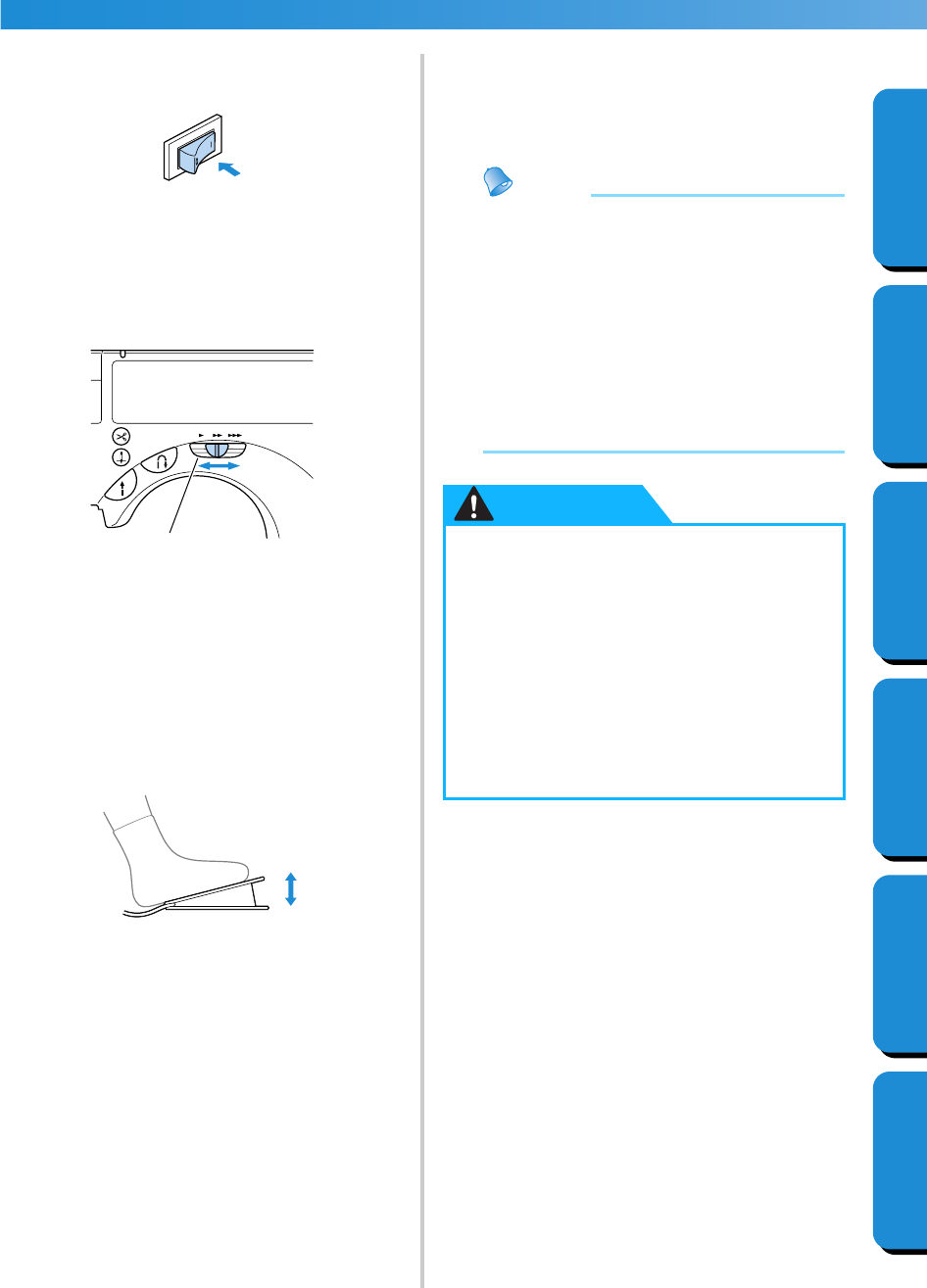
SEWING BASICS ———————————————————————————————————————————————————————
—
46
GETTING READYCONTENTS SEWING BASICS UTILITY STITCHES APPENDIX INDEX
3
Turn on the sewing machine.
4
Slide the sewing speed controller to the left or
right to select the desired sewing speed.
Slide the sewing speed controller to the left to
sew at a slower speed, or slide the speed
controller to the right to sew at a faster speed.
1 Sewing speed controller
• The speed set using the sewing speed
controller is the foot controller’s maximum
sewing speed.
5
Once you are ready to start sewing, slowly
press down on the foot controller.
Pressing down on the foot controller increases
the sewing speed; releasing the pressure on the
foot controller decreases the sewing speed.
• Slowly press down on the foot controller.
Pressing it down hard starts sewing too
quickly.
X The machine starts sewing.
6
When the end of the stitching is reached,
completely release the foot controller.
X The machine stops sewing with the needle
lowered (in the fabric).
7
When you are finished sewing, raise the
needle, and then cut the threads.
• For details, refer to “Cutting the thread”
(page 49).
Memo
● When the foot controller is plugged in, the
start/stop button cannot be used to start or
stop sewing.
● When sewing is stopped, the needle
remains lowered (in the fabric). The
machine can be set so that the needle will
stay up when sewing is stopped. For details
on setting the machine so that the needle
stays up when sewing is stopped, refer to
“Changing the needle stop position”
(page 107).
1
Slower
Faster
●
Do not allow thread or dust to
accumulate in the foot controller,
otherwise a fire or an electric shock may
occur.
●
Do not place objects on the foot
controller, otherwise damage to the
machine or injuries may occur.
●
If the machine is not to be used for a long
period of time, unplug the foot
controller, otherwise a fire or an electric
shock may occur.
CAUTION
S2_brotherE.book Page 46 Wednesday, May 14, 2003 8:05 PM


















